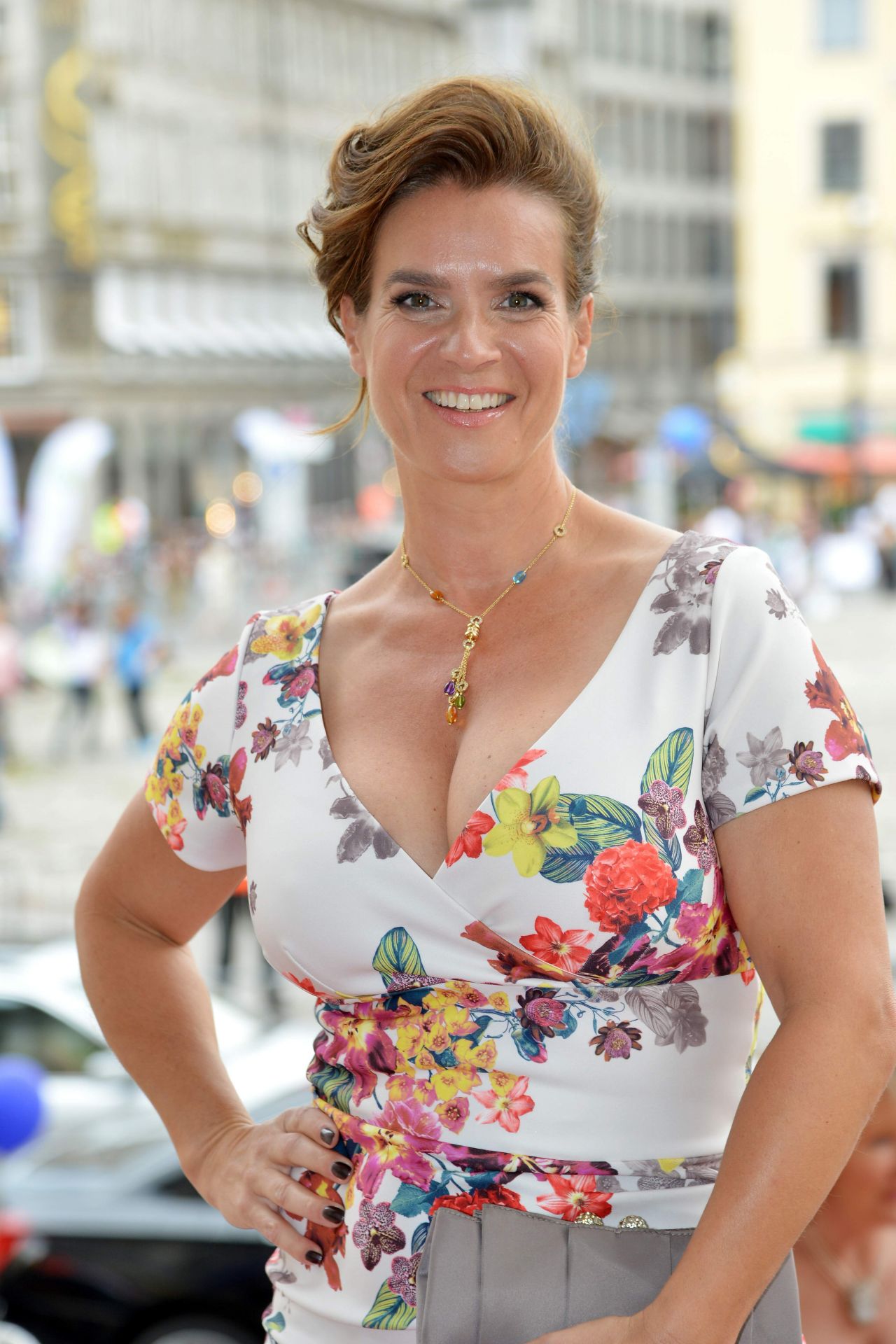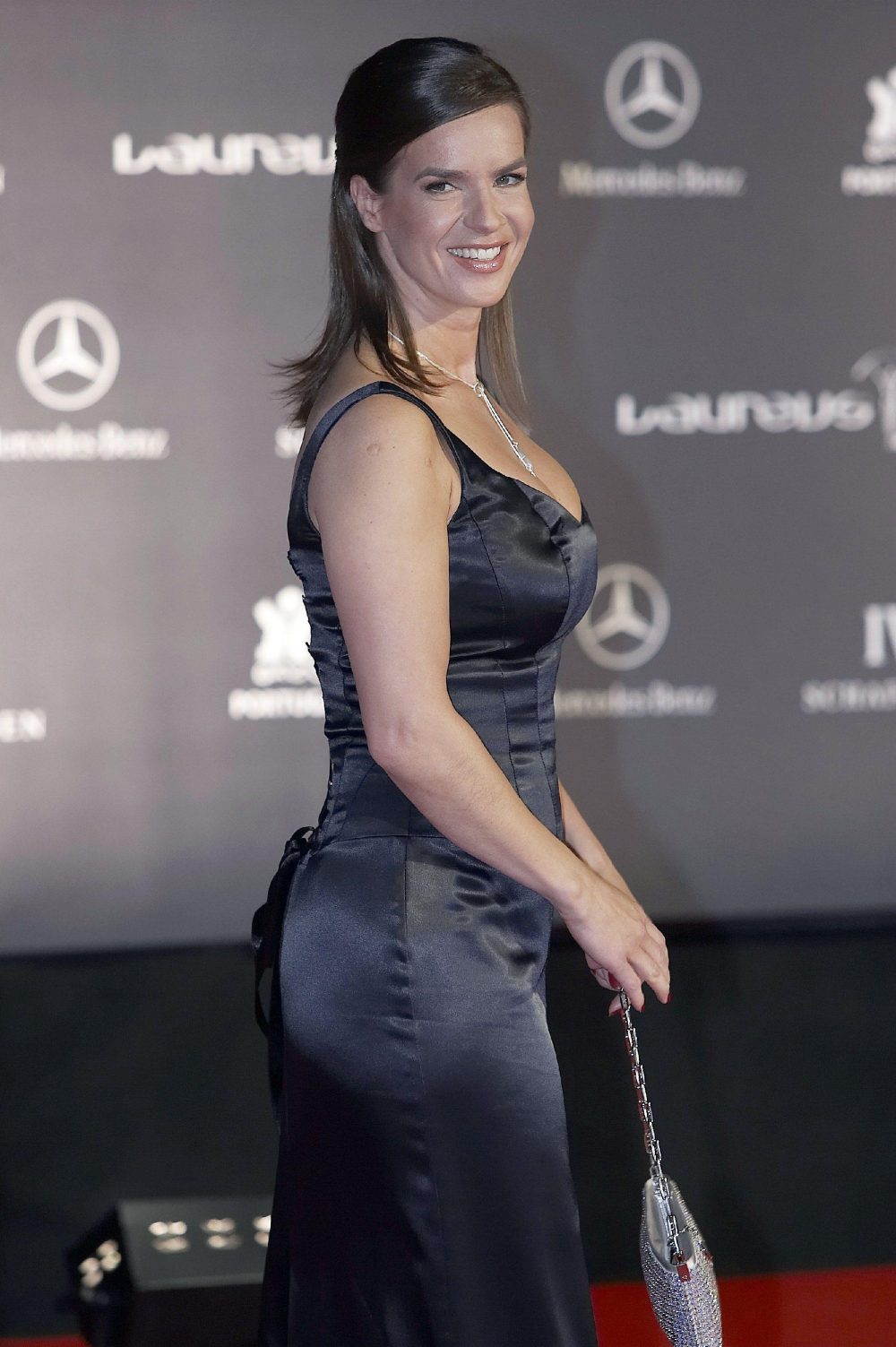Katarina Witt: From Olympic Glory To Now - A Look Back
Could the grace of a figure skater, a performer on ice, also be a force that shapes the entertainment industry and empowers others? Katarina Witt, a name synonymous with elegance, athleticism, and a captivating presence, has proven precisely that. Her journey from the rink to the broader world of entertainment is a testament to her enduring influence and multifaceted talents.
Witts career began in the crucible of East Germany, where she honed her skills to become one of the most dominant figure skaters of all time. Her performances were not merely athletic feats; they were artistic expressions that blended technical precision with a captivating stage presence, drawing audiences from all over the world.
| Category | Details |
|---|---|
| Full Name | Katarina Witt |
| Date of Birth | December 3, 1965 |
| Place of Birth | East Berlin, East Germany |
| Nationality | German |
| Sport | Figure Skating (Singles) |
| Olympic Medals | 2 Gold Medals (1984 Sarajevo, 1988 Calgary) |
| World Championships | 4 Gold Medals |
| European Championships | 6 Gold Medals |
| Known For | Charismatic performances, artistic flair, pioneering role in figure skating |
| Other Ventures | Actress, Producer, Founder of Katarina Witt Stiftung (Charitable Organization) |
| Key Performances | 1984 Sarajevo Olympics, 1988 Calgary Olympics, Carmen on Ice |
| Filmography | Ronin (1998), Jerry Maguire (1996) |
| Nickname | Kati (childhood nickname) |
| Years Active | 1970s-1990s (Competitive Skating), 1990s-Present (Entertainment) |
| Official Website (Reference) | Katarina Witt Official Website |
Born in East Berlin on December 3, 1965, Katarina Witts path to figure skating stardom was paved with rigorous training and unwavering dedication. Under the guidance of Jutta Mller, Witt's coach, she developed the technical skills and artistic expression that would become her trademarks. She was not just a skater; she was a performer who understood how to connect with her audience on an emotional level.
The 1984 Sarajevo Olympics marked a pivotal moment in Witts career. She delivered a series of stunning performances, culminating in her first Olympic gold medal. Her success was not only a personal triumph but also a source of pride for East Germany, a nation that celebrated athletic achievement as a symbol of its prowess. The victory in Sarajevo, and subsequently in Calgary, established Witt as a global icon.
In 1988, at the Calgary Olympics, Witt once again captivated audiences with her artistry. She became the first woman to win consecutive Olympic gold medals in singles figure skating since 1936. This historic achievement solidified her legacy as one of the greatest figure skaters of all time. Her routines were characterized by a blend of technical mastery and expressive choreography, set to music that further enhanced the emotional impact of her performances.
Witt's grace, combined with her powerful skating, made her a force on the ice. Her competitive success included six European Figure Skating Championships and four World Figure Skating Championships. Beyond the titles and medals, she brought a sense of drama and passion to her performances that made her a favorite with audiences worldwide. Her presence on the ice was captivating. She elevated the sport, making it accessible and appealing to a broader audience.
The 1980s were arguably Witt's decade. She was a fixture in international competitions, a star whose talent and charisma transcended the sport itself. She was often lauded for her "flirtatious and graceful performances," which became her signature style. Her costumes, music selections, and the way she interacted with the audience all contributed to her unique appeal.
After retiring from competitive skating, Witt transitioned seamlessly into the entertainment industry. She became an actress and producer, appearing in films such as "Ronin" (1998) and "Jerry Maguire" (1996), showcasing a versatility that extended beyond the ice rink. She also starred in "Carmen on Ice" (1990), a television special that blended her skating skills with theatrical storytelling. These ventures allowed her to explore new creative avenues and connect with her audience in different ways.
But her impact wasnt confined to her competitive career or her acting roles. Witt also founded the charitable organization "Katarina Witt Stiftung," which focuses on supporting children and young people. This demonstrated her commitment to giving back to the community and using her platform to make a positive impact. This organization reflects her commitment to social responsibility and desire to help others.
Throughout her career, Witts impact on the sport was profound. She redefined the role of the figure skater, transforming it from a purely athletic pursuit into a form of artistic expression. She inspired countless young skaters and left a lasting legacy that continues to influence the sport today. Her willingness to experiment with different styles and techniques helped to push the boundaries of figure skating.
The nickname "Kati," given to her during childhood, became a term of endearment among fans. This intimate connection with her audience highlighted her ability to connect with people. She was not just a celebrity; she was a personality whom people felt they knew and admired.
In conclusion, Katarina Witt's journey is a compelling story of athletic achievement, artistic expression, and social responsibility. Her impact extends far beyond the ice rink, encompassing the entertainment industry and philanthropic endeavors. She exemplifies the power of talent and determination. Her ability to adapt, inspire, and engage with her audience ensures her place as a true icon.


